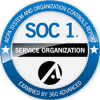The US health care system is increasingly moving towards value-based care to promote improved health outcomes for Americans. This can be seen across Medicare Advantage Plans (MA Plans), Accountable Care Organizations (ACOs), and Certified Community Behavioral Health Centers (CCBHC), among others. This movement also demands a transformation of reimbursement models to value-based contracting, with a focus on sharing risk across stakeholders and controlling costs to improve patient health.
Organizations successfully producing value-based health outcomes rely on integrated data and information systems that support the key functionality required to coordinate and manage care. Their infrastructure is designed to manage: 1) the members of a covered population; 2) the providers, facilities, and other organizations that provide care; 3) the care team and coordination of care; and 4) the adjudication of services and the tracking and reporting of health outcomes.
For organizations managing risk-based contracts, this includes the ability to:
- Track and manage enrolled or covered populations – Value-based contracting requires the ability to enroll and track populations that are served by multiple clinical providers and systems, including some individuals who may not be engaged with any providers. Technology solutions must support the ability to accept inbound enrollment feeds, and populate them within a health management system and track different covered benefits among their enrolled populations.
- Develop, contract and maintain networks of providers and facilities – Managing population-based health systems requires the ability to maintain multiple provide networks, monitor both in and out of network provider status, and track and manage provider and facility contracts.
- Support the coordination of care – Effective health outcomes are achieved by care teams that are able to coordinate providers who address the physical, behavioral, and social needs of patients. Care teams require effective tools that support enhanced communication, coordination of services and implementation of person-centered care plans
- Monitor service authorizations and utilization review – Implementing value-based contracts requires the ability to monitor and measure adherence to established benefit plans, authorize medically necessary services, and review utilization to assure that the best evidence-based care is administered.
- Process and pay claims – Value-based payment and risk-based contracting is contingent upon effective and efficient service delivery across the system of care. Contracting organizations require mechanisms to track and adjudicate the expenditures for services within defined covered benefits across the systems that provide care.
- Maintain quality management programs that support continuous improvement, contract compliance, and reporting – All value-based contracts have compliance and reporting requirements often embedded within quality improvement programs that also monitor the process and outcomes of care, seeking continuous improvement. Managing data is a key component of successful risk-based contract management.
The ability to fully integrate to manage information and coordinate care is a significant predictor of successful value-based payment programs; however, all too often, organizations that contract to provide value-based care have fragmented technology systems that fail to integrate the important data and communications among patients and providers; care coordination teams and utilization management review; covered benefits and claims; and quality operations and compliance reporting.
InfoMC’s Incedo™ Healthcare Management system provides a fully integrated solution for all of these aspects of value-based contracting. To learn more, contact us today.








